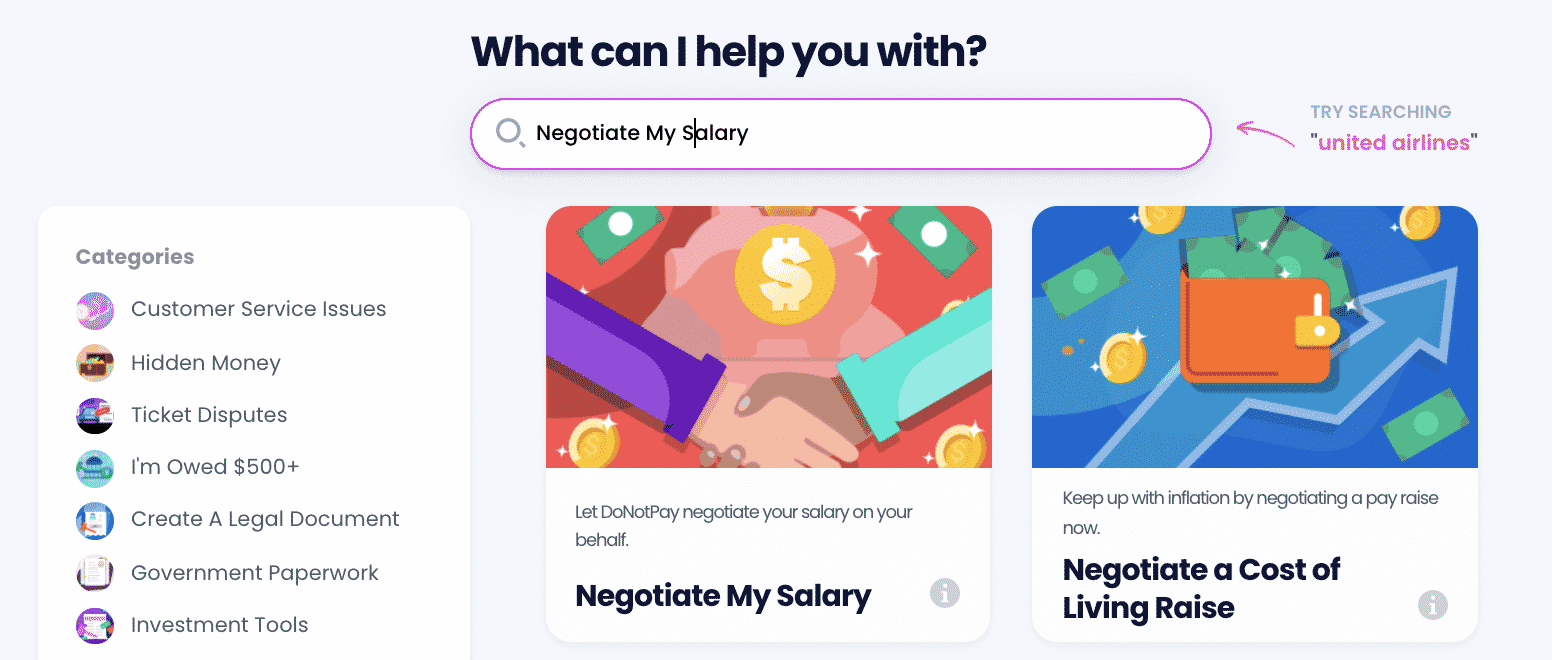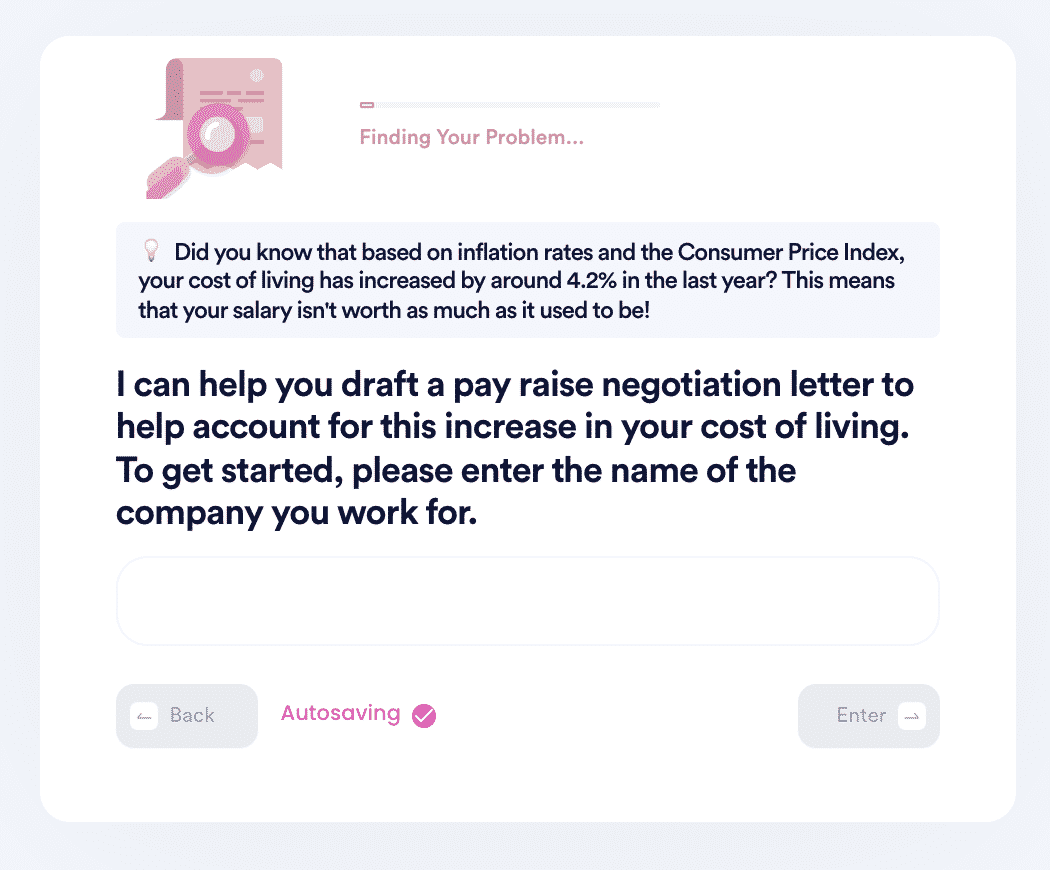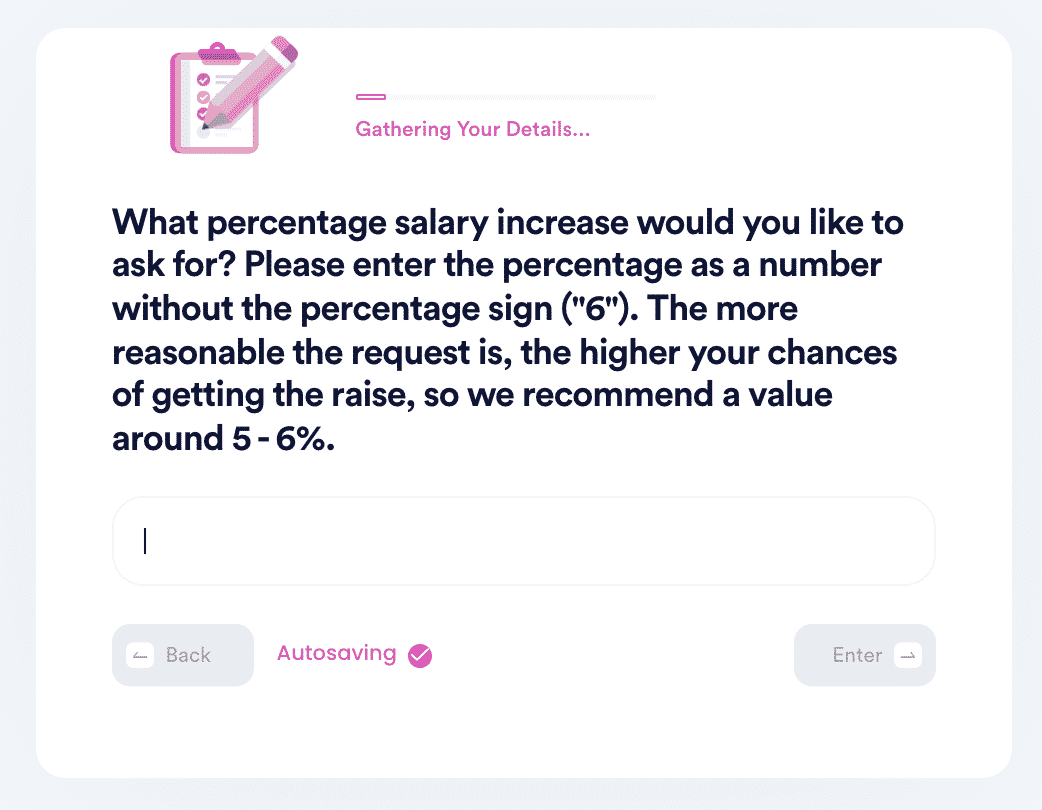Salary Negotiation Strategies for Teachers
If you're wondering whether , the answer may surprise you. Sometimes it's a predetermined number that correlates with years of teaching experience under your belt. But don't mistakenly believe this is always the case.
Knowing when you can negotiate a teacher's salary can be a bit tricky, and it requires the same negotiation skills as any other profession. There are proven methods for the best results—to get the raise you feel you deserve.
Read on for valuable tips on knowing when it's possible to negotiate a teacher's salary. Or, take the easier path—let DoNotPay be your advisor and fill you in on all the rules that apply to you. And, DoNotPay will also negotiate on your behalf.
When Can Teachers Negotiate a Salary?
So now, if you're wondering when a teacher's salary and when negotiations are not likely to work—the answer is that it just depends on the school. And, the type of school is most important.
If you're a teacher working for a private school or, even better, a private university, you'll have the best chance to negotiate a higher salary successfully. If you're a public school teacher, you will probably have fewer opportunities to negotiate—but your salary may be higher than private school teachers.
A public school teacher's pay is usually determined by a salary guide, which is based on years of experience and level of education. Since teachers' salaries in public schools are often determined by this type of guide, some say it leaves little room for negotiation. But according to the New Jersey School Boards Association, there is always room for negotiation.
It may still be possible to negotiate salary, even for teachers at schools that use a salary guide. Some school districts in New Jersey, for example, chose to move away from following these types of guides.
Why Teachers Deserve A Pay Raise
Most schools have pay rise protocols in place. Your school may raise your pay after a performance review or a set cycle. However, extraordinary circumstances warrant a pay rise, hence the need to know how to ask for a raised script.
| The Increased Workload | Whether the extra work is voluntary or allocated by your supervisor, you deserve a pay rise. If you perform the extra work exceptionally, all the more reason. |
| Value of Your Accomplishments | You've bought in a new client or spotted some irregularities in the school's systems averting a major catastrophe.
Quantifying these accomplishments to indicate the value they've brought to the company is a genuine reason for a raise. |
| Salary Disparities | In your research, you might discover an employee from another school in a similar position earns more than you do. While it's not ideal to compare salaries, you can make your case and request your superiors to consider that pay difference. |
How Often Should a Teacher Get a Raise?
is usually increased each year due to two factors—an annual cost of living increase and the fact that the teacher has gained an additional year of experience. Schools that use a salary guide typically consider these factors when determining annual increases.
If you're a teacher at a school where negotiation is possible, and you're not asking for a raise every year, you should be. When you are not entitled to an automatic raise because a salary guide is not used in your school, remember that you are entitled to negotiate your salary each year.
How to Negotiate a Teacher’s Salary—3 Ways, Step-By-Step
For teachers negotiating salaries, the same rules as any other profession apply. Here are three ways that you can negotiate—and some tips for being successful, whichever method you choose.
By Email
Sending an email is an ideal way to negotiate a salary, especially when you are offered a new job. Here's how:
- Send an email that is polite, professional, and direct, Fast Company advises.
- Include the specific number you are asking for and reasons why you feel you deserve it.
- Make sure the tone of your email is positive and that you are negotiating, not being argumentative.
By Phone
Negotiating salary over the phone can be easier than an in-person meeting. Keep the following tips in mind:
- Do your research, and have notes—or a script—to follow as you are speaking.
- Focus on being clear and brief.
- Don't do all the talking—listen to your employer's response.
In-Person
Experts often recommend in-person negotiations—but a lot can go wrong. Here are some tips:
- Try to relax and don't be nervous.
- Clearly state the increase you deserve and why.
- Always have an exact number in mind—and always say a higher number—to leave room to negotiate.
Or—there is an easier way. Use DoNotPay to negotiate a teacher's salary, and you're more likely to be successful.
Teachers Can Negotiate a Salary Effectively with DoNotPay
Need a foolproof way to ? Let DoNotPay help.
All you have to do is:
- Search “negotiate my salary” on DoNotPay.

- Enter the name of your company and the industry you work in, so we can find the right wage statistics for your role.

- Answer a series of questions regarding your qualifications and achievements, relocation expenses, and other job offers if applicable.

- Enter the new base salary you would like to request.

And that's it! Once the information is finalized, DoNotPay will generate an official salary negotiation letter that you can then email or present to your employer.
Why Use DoNotPay to Help Negotiate a Teacher's Salary?
There are many reasons to use DoNotPay. But three important ones are listed below. DoNotPay is always:
- Easy—No need to devise a game plan—let DoNotPay help strategize for you.
- Fast—Quickly submit your request for a teacher's salary increase without wasting time figuring out what to write.
- Successful—Use DoNotPay, and you'll be on your way to earning the salary you deserve.
DoNotPay Can Help With All Issues Related to Salary Negotiation
Just click a button, and find answers to the following questions:
- How much of a raise should I ask for?
- What do I need to know about asking for a raise?
- What is the best time to ask for a raise?
- Should I negotiate my salary?
Join DoNotPay today!
 By
By